Months of preparations and tons of efforts resulted in an incident-free G20 TWG meeting amid unprecedented security measures in Kashmir. Discussions around sustainable development and film tourism apart, the over-hyped event offered interesting peephole views of the perceptions and perspectives around Kashmir, reports Raashid Andrabi and Syed Shadab Ali Gillani
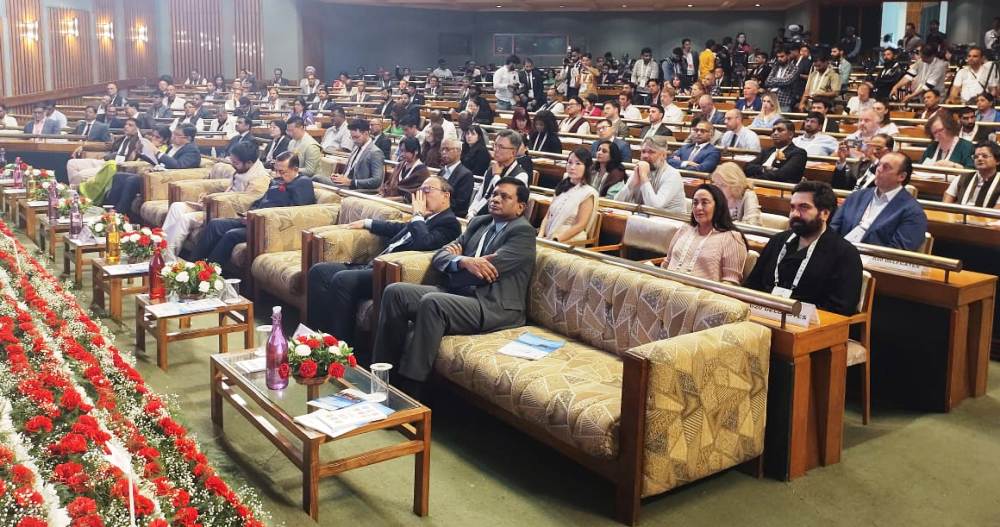
The first wave of relief was visible on the faces of security men as they watched the tightly-guarded convoy of black Scorpios, small buses and ambulances passing through a deserted Indira Gandhi Airport road to the pre-partition palace converted into a five-star hotel on May 22. The security grid was literally awake the whole night and every inch of the space that the G20’s Tourism Working Group (TWG) delegates were supposed to step on was under their sight.
“I had not a wink since 1 am so I am politely requesting you not to wait somewhere else for the bus,” a middle-aged, visible tired cop told a group of commuters waiting for the bus near Humhama. “Let the convoy pass and it will be slightly better.”
The situation eased momentarily. With the convoy gone, the cops and paramilitary men guarding the road moved from the shadows of the greeting buntings installed across the city and resumed sort of the routine. Quite a few buses were plying, markets were open but not many people were seen on the streets. The focus shifted to the Boulevard on the two sides of which are located the city’s two top hotels on the Zabarwan Hills, the SKICC, the venue of the meeting, and five major gardens and picnic spots.
G20 secretariat took over the charge of delegates soon after they moved out of the chartered aircraft to a red carpet welcome. They were formally received by Tourism Minister G Kishan Reddy and Amitabh Kant, the G20 Sherpa. Young girls queued up on either side of the red carpet and presented Kashmiri pashmina shawl and a Dogri saffa to them and applied tika to their foreheads, a traditional Hindu style of greeting. Outside the airport, traditional Kashmiri drummers and Jammu flute were in attendance.
It was a flower petal shower waiting for them in the lawns of the two hotels, they checked-in, by folk dancers from Kashmir and Jammu, welcoming them with the tunes of santoor and folk songs. Soon, they were in the auditorium of the SKICC and there were a series of speeches and interactions.
Stress Busting Destination
“The finest destination anywhere in the world to shoot a film and to shoot a romance and it cannot be a better place than Kashmir,” Kant told the participants in his welcome speech, insisting 370 films were shot in 2022. “We will help you bring more and more romance, more glamour and nature in your films.”
Kant told the session Film Tourism for Economic and Cultural Preservation that Kashmir is an ideal land for shooting great stories as it has something to offer to everyone. “Without Kashmir, no romance in India was complete,” he insisted while talking about Bollywood’s age-old love for Kashmir. “Just enjoy, relax and treat it as your greatest stress busters you ever had,” Kant suggested to the participants perhaps not knowing that 45 per cent of Kashmiri adults suffer from mental distress.
Dr Jitendra Singh’s speech was a good lecture about the inherent capacities that encouraged Bollywood to retain Kashmir as its permanent set till the situation turned upside down. Terming Kashmir as the “most profitable, cost-effective and economically viable” film destination, Singh said the situation has improved and the crews must fly in from across the world.
“In 2022, 1.84 crore tourists visited Jammu and Kashmir and this year, we expect 20 million arrivals including foreign guests,” Tourism Minister, GK Reddy told reporters, revealing the government plans 100 per cent FDI in the hospitality sector across India. “We have started the preparations, and the Government has approached all States, and discussions are going on. Our idea is that without private investment we cannot become a world tourist destination which is why we want investment globally and locally. We cannot become a world tourist destination, which is why we want investments globally and domestically, and we are also encouraging 100 per cent FDI under Modi.”
Reddy said the region (Jammu, Kashmir and Ladakh) gets 74 to 160 flights. “The weekly flight tally for Srinagar has gone up to 532 flights since the end of 2022,” he said.
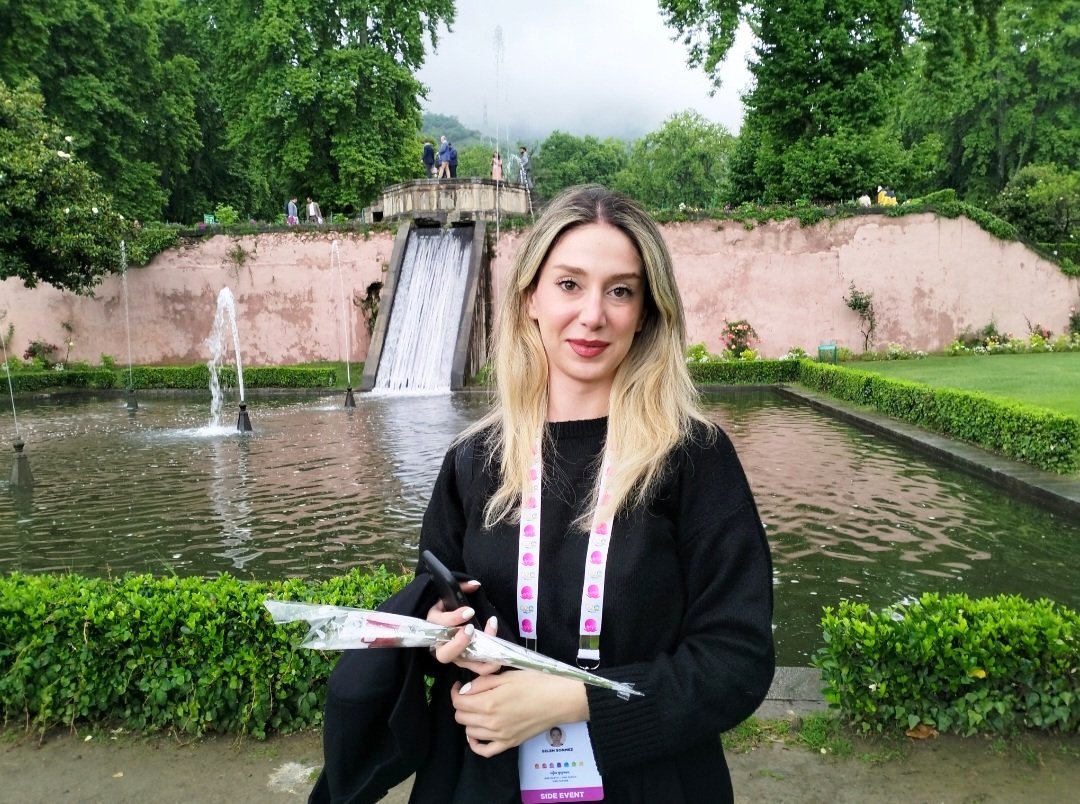
The highlight of the session was Telugu actor, K Ram Charan, whose The Elephant Whisperers bagged two Oscars for Naatu Naatu song. Apart from having a brief interaction with a film scribe, he shook a leg with a delegate on the famed song. The symbolic dance that went viral on social media was brief, perhaps because he was too tired. After flying to Srinagar in his charter aircraft, he had to spend not less than an hour at the airport as his three vehicles waited for fuel.
This, however, did not prevent the superstar from speaking his heart about Kashmir he had visited many times with his father, also a cine star, Chiranjeevi. He visited Kashmir in 1986, for the first time. “It will sound cliché, but the coolest place to shoot in India is Kashmir. I am a second-generation actor. My dad has shot extensively in Kashmir,” Charan said. “There is something about this place. One lifetime is not enough to explore the beauty of Kashmir.”
Telugu star said that India’s film industry is 90 years old and it will take the sector another 95 years to explore Kashmir. “I shot in this auditorium (SKICC) in 2016,” he said. “So, visiting Kashmir feels like an achievement for me. This is such a surreal feeling.”
Press Interaction
An interaction followed the session in which Singh, GK Reddy, Kant and the top PIB official and the G20 coordinator addressed the media.
“If such an event (G20) was held earlier, a strike call would be given from Islamabad (Pakistan) and shops on Residency Road (in the city centre of) Srinagar would close,” Singh told delegates. “Now there is no hartal even if the call for hartal has come from here or there.” He said the common in Kashmir want to move on “as they have lost two generations (due to militancy)”.
Singh said that holding the event in Srinagar was “an achievement of sorts”. He expected the delegates to appreciate the Kashmir change and “falsify the perception that is sought to be created by vested interests”. Insisting that youth in Kashmir are “highly aspirational even in comparison with their counterparts in the rest of the country, highly forward-looking and well informed,” Singh said they do not want to miss the bus of development and progress and have trusted Premier Narendra Modi to be part of the globalised world.
Unlike the first session, the news conference was not a monologue. A lot of media had flown to Srinagar and these included a good number of foreign journalists based in Delhi, who otherwise require a formal permission to Srinagar visit. They along with many Srinagar-based scribes asked questions, some of them not so comfortable.
NDTV’s Nazir Masoodi asked whether a fairly large participation was an endorsement of “India’s stand on Kashmir” or whether the government wanted the participation of even those opposed to that stand, according to Kolkata-based newspaper, The Telegraph.
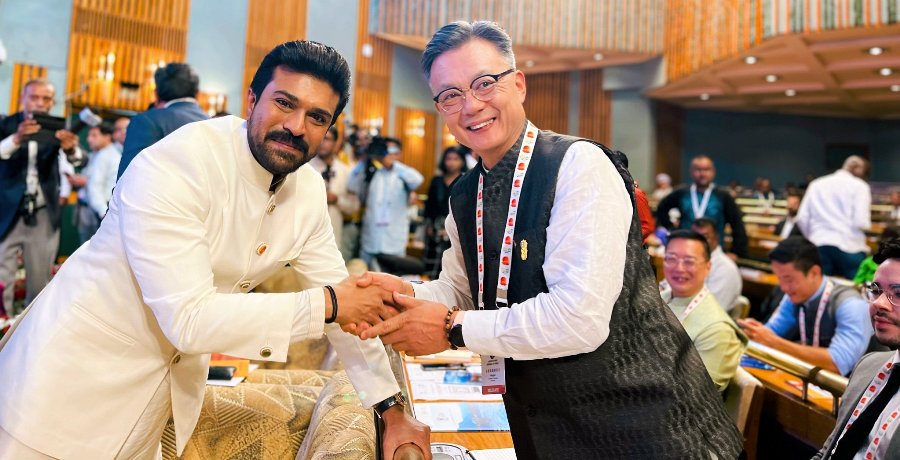
“What is important is to understand the myth of this (India’s stand). What stand? What is India’s stand? Jammu and Kashmir is as much a part of India like any other state or Union Territory of India,” Singh responded. “I don’t understand what it means — India’s stand on Kashmir? What is India’s stand on Punjab, UT of Delhi or Goa? This is exactly what we need to see with our eyes and ears open, to clarify the clouding of thoughts about what has happened.”
Naveed Iqbal, a journalist with The Indian Express asked if such an international event was possible in Kashmir, why not a political process? The minister termed the question “motivated by the mindset, which was haunting the earlier friend.” This, he said because he has personally been associated with media earlier.
Singh, however, responded to the question. “What do you mean by that? The political process is already going on. We have DDCs (district development councils) in place, BDCs (block development councils), panch and sarpanch councils. Is that not part of political process to you?” Singh asked. “You should compliment us, Narendra Modiji, that district councils were introduced after 70 years.”
Jammu and Kashmir is lacking an assembly and the erstwhile state is being remotely ruled from Delhi since 2018 summer.
It was now the turn of a French Radio journalist who asked about the “very high security” and closure of schools for the TWG meeting. In response, Singh said that such restrictions are in vogue even in France. “I did not say schools. But whenever there is a meeting of this scale you always have scaled-up security, even in France, in Paris,” Singh said. “I have seen, I have been a witness, the hotels where they stay are cordoned off, lanes are cordoned off. Just because it is happening here, to an extent what you are saying does not make it different.” The minister did put a word of caution: “Please don’t project it like that. The delegates from other countries would get apprehensive by what you have said.”
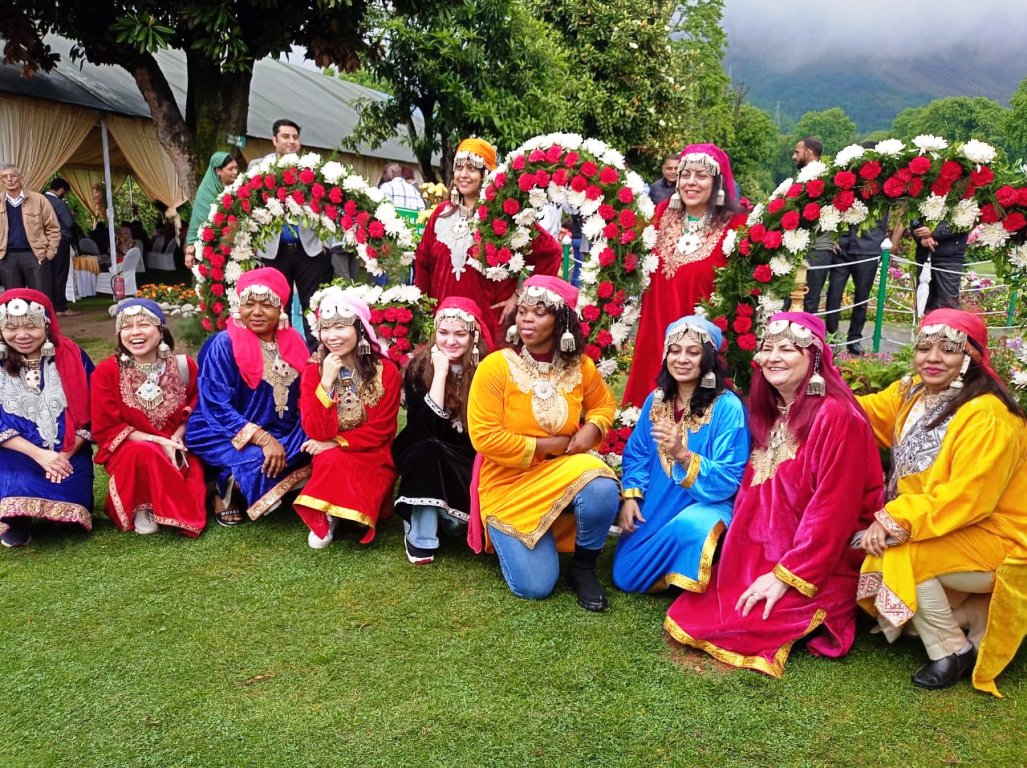
Participation
From the very start, participation was a key element being asked and debated. G20 is a group of 19 countries and the EU. Its members comprise nearly two-thirds of the world population and three-fourths of the global GDP. Three Muslim countries including Saudi Arabia, Turkey and Indonesia are its members.
Every time, there is a G20 meeting the host countries invite other countries as well. This is a routine protocol.
India Today’s Geeta Mohan asked if the non-participation of some countries was proof that their allegiance to the Organisation of Islamic Cooperation was greater than their strategic partnership with India. She was apparently responding to the absence of G20’s all three Muslim members. China had already publicly stated that it was unlikely to attend the meeting. China and India are in a stand-off in Ladakh, a development that took place within a year after the reading down of the Article 370 of the Constitution of India.
This time, G20 Chief Coordinator Harsh Vardhan Shringla, responded suggesting her not to “miss the wood for the trees”. He told the reporter that the meeting had drawn heavy participation and the fact is that not all countries participate in all meetings.
From the very eve of the meeting, Kant has been maintaining that barring China every other member was attending the meeting. “Some country not participating does not mean it has become an enemy of ours. Don’t take it to that level,” Kant was quoted as saying. He claimed that those who were not had sent their private travel and tour industry representatives. Media reports suggest Riyadh and Istanbul had sent trade delegations but not attended the functions formally. Kant said there are 61 participants from 29 countries. A media report put the number at 122 delegates, including 60 foreigners.
While two of the OIC trio stayed away – Indonesia, officials said had sent a counsellor identified as Hanafi, the fact is that many others from the OIC grouping did participate. They were invited specially. These included UAE, Nigeria, Bangladesh and, possibly Oman. Bangladesh and Nigeria had sent their Delhi-based mission heads, Md Mustafizur Rahman and Ahmed Sule. Even the UAE had sent its envoy Abdullah Bin Touq Al Marri. Egypt had also been invited specially but it chose not to join. Its absence was felt in Delhi as Egyptian president Abdel Fattah El-Sisi was the chief guest at India’s Republic Day parade in 2023.
Western Advisories
Almost everybody in the hospitality sector maintained from day one that the possible outcome of the meeting would be that the host state would request the visiting delegates to undo advisories they had issued to their citizens suggesting them against visiting Kashmir. This was even being hoped at the official level as well that the meeting would help Kashmir attract the Western tourists as used to be there before the militancy broke out in 1990.
“The G20 will aid in eradicating unfavourable impressions of Jammu and Kashmir, which would benefit its tourism,” Union Tourism Secretary, Arvind Singh told reporters on the sidelines of a news conference at SKICC on May 21, 2023. “As delegates and envoys visit from many nations, they will immediately have first-hand knowledge of the situation, which aids in eliminating unfavourable travel recommendations.”
Top host officials were dismissive of the development. “If travel advisory was so stringent… their representatives would not have come. All G7 countries are participating,” Kant was quoted telling a questioner. “What travel advisory are we talking about? Let us not get carried away by the bogey of travel advisory or something. Tourists are coming, tourism is flourishing.” He insisted: “Hardly any country has issued a travel advisory.”
TWG’s LG Day
Day 2 was literally the day of Lt Governor, Manoj Sinha who started his day with a brief speech to the meeting and later took them for lunch in the Raj Bhawan lawns. He hailed organisers that the Srinagar meet has been bigger than previous TWG meetings in Siliguri and Gujarat. “I have been informed that 57 delegates from 27 countries are participating in the G20 meeting at Srinagar and it is a reflection of India’s strength and our ancient values of Vasudhaiva Kutumbakam,” he said.
“We are capable enough to host any international event. If there are any shortcomings, we have got them in the legacy,” Sinha said while taking a dig at regional political parties who ruled Jammu and Kashmir for seventy years. “We have picked up pace, but it will take time to fill the void of 70 years.”
“In 2022, 18 million tourists visited Jammu and Kashmir contributing seven per cent to the total GDP of the UT,” Sinha told the delegates, which cleared the confusion that the hospitality sector is the mainstay of Kashmir economy. “In 2022, more than 300 films and serials were shot.”
Highlighting the changes that post-2019 were affected in Jammu and Kashmir, Sinha shared statistics: 60 lakh people participated in sports activities in 2022; 4292 Panchayats have youth clubs; Jammu and Kashmir registers a start-up every second day; one new industry goes operational every day; six lakh women entrepreneurs are trying to scale global heights; since 2019,770 thousand entrepreneurs were registered which roughly means that per day 527 youth started their entrepreneurial journey; every day, 7 to 8 applications from different industrial houses from India and abroad are received and in 2022, on an average one industry became operational per day.
Sinha revealed that project implementation has gone up 10 fold as Jammu and Kashmir has infrastructure projects worth Rs 1.5 lakh crore underway. “State land will be auctioned for setting up hotels and infrastructure and some hotels will be disinvested,” Sinha said. “We will show you quality hotels after two years.”
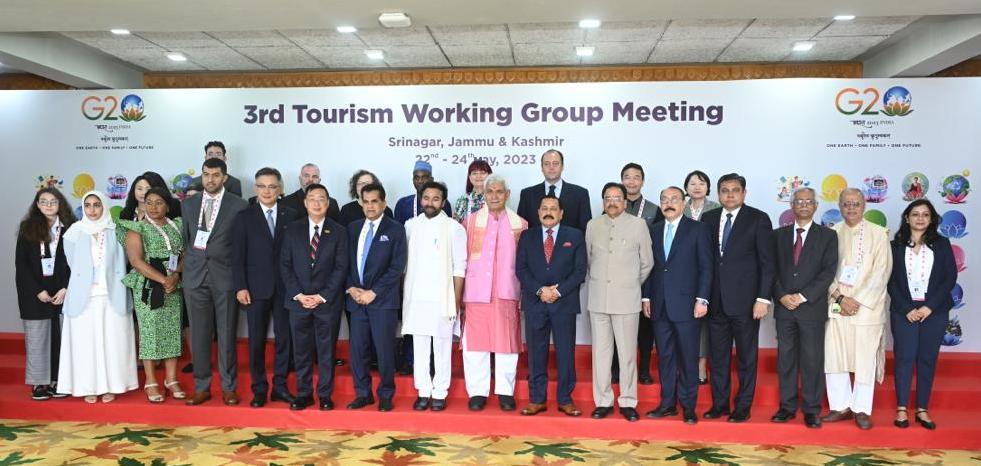
Press Freedom
Sinha said the media in Kashmir enjoys “absolute freedom”. Responding to a question from a Western scribe, during an interaction with media in Raj Bhawan lawns, Sinha did refer to the commentary by a global watchdog.
“According to a report by an international organisation, seven journalists in Kashmir were arrested on terror charges and for disrupting social harmony, not for their reporting,” Sinha said. “The numbers are 10 to 20 times higher anywhere else in the world.”Sinha insisted there is an independent and active media in Jammu and Kashmir. “More than 400 newspapers are published here.”
The foreign journalist’s question apparently emanated from a statement that the US-based media watchdog Committee to Protect Journalists (CPJ) tweeted on May 22, coinciding with the start of the G20 event. “CPJ calls on the Indian government to end its brutal crackdown on the media and immediately release the four arbitrarily detained Kashmiri journalists,” the group said in a statement shared on Twitter. It mentioned the names of Asif Sultan, Fahad Shah, Sajad Gul and Irfan Mehraj.
On Pakistan
Scribes asked Sinha and Reddy about the remarks that Pakistan foreign minister Bilawal Bhutto made while speaking in Muzaffarabad. He had accused Delhi of “abusing” the G20 presidency. He claimed the G20 meeting was aimed at showing “normalcy and peace” are returning to the region after Delhi revoked its “limited autonomy in 2019 and took direct control, imposing an extended lockdown”.
“I think our neighbouring nation should make arrangements for feeding its people and for providing basic amenities. We have come a long way from there. G20 is a matter of pride for us,” Sinha said, insisting G20 presidency is a matter of pride for India. “The presence of UN representatives here indicates that the world wants India to host such an event.” Five UN organisations, including UN Headquarters, UNWTO and UNEP and ILO participated.
“Who is Pakistan to say anything? What right does it have? Jammu and Kashmir has been a part of India since Independence. This is our land, these are our people, and thousands of people have sacrificed their lives for it. Who is Pakistan to say anything?” Reddy told in response to a similar question in SKICC during the day. He suggested Islamabad to do something for the betterment of its people. “Provide them employment, food. Why are you talking about us? You have no right.”
Photo-ops, Picnic
Though the delegates went for a joy ride in the recently de-weeded part of the Dal Lake around the Centaur-SKICC complex in bedecked and illuminated Shikaras on the second day of their arrival, the last of the three-day was exclusively meant for sightseeing. Authorities at the last moment cancelled their overnight stay at Gulmarg and also skipped the Dachigam National Park, the abode of threatened Kashmir stag Hangul, not far away from the hotels guests were staying in.
Officially it was said the visit was cancelled for logistical reasons. The security establishment told reporters that security apprehensions were paramount. Not far away from the Line of Control, there was an attempt at infiltration in the sector a few days earlier. The meadow, Kashmir’s key scenic spot is within the simple mortar range from the other side of the divide. Security reasons were also the main factor behind dropping Dachigam from the diplomat-outing plan, a fascinating spot where they were supposed to have lunch.
This left the neighbouring Nishat Mughal Garden and Pari Mahal as the only options around. Earlier, they spent some time at the world-class Royal Spring Golf Course (RSGC). After starting their day with a yoga session, they spent quite a fair time in Nishat, one of the many scenic spots that Kashmir got during the Mughal occupation. Later some female embassy staffers adored traditional Kashmir dresses including Pherans and not-in-vogue headgear including silver jewellery and started posing for the official cameras in groups and individually. One photograph of a young French embassy staffer was an instant hit on social media and is expected to remain a poster of Kashmir tourism throughout.
The city was tense as the delegates moved to the recently refurbished all-pedestrian Polo View High Street. Even the security grid was on tenterhooks. This was the only occasion when the delegates were out in the open having the option of talking to people if they wished so. Traffic remained jammed for more than an hour till they remained busy at the shops. Some of the delegates had desired to meet some politicians but it was not immediately known if they were granted permission.
Some of the delegates had visited the mini-exhibition that the government had set up in the lawns of the SKICC where the crafts were on display and the craftsmen were working. They had made some purchases there as well.
The delegates were also invited to a cultural show. Initially, the administration released a series of scintillating photographs of the show, which among other things shows a diplomat also shaking a leg. Most of these photographs were later quietly withdrawn.
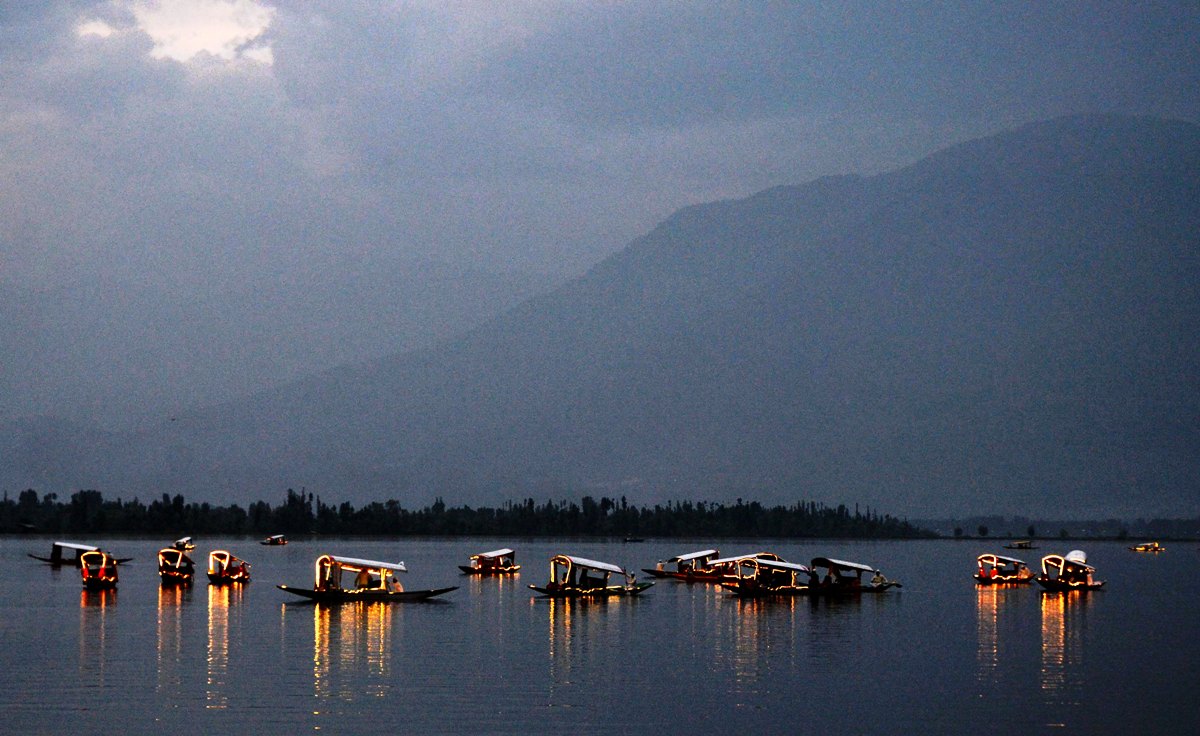
Guarded Responses
Diplomats and embassy staffers are trained to listen rather than speak. Not many people spoke. European Union members refused to speak to anybody. A few preferred Twitter to acknowledge their presence in Srinagar. “Shopping our way through the best of J&K’s famed agricultural produce and GI artisanal crafts; even bumped into a merlion. Must visit!” Simon Wong, High Commissioner of Singapore to India, said in a tweet.
Those who spoke were cautious and brief. “We attended the meetings and the side events and also met members of the local chambers here,” a Mexican participant said. “G20 is a top priority for Mexico,” he said.
“It was a fantastic and memorable visit. I love being in Srinagar. I hope people come and enjoy the scenic beauty and the film tourism prospers in Kashmir,” Chang Jae-Bok, South Korean Ambassador to India, told The Hindu. He told The Indian Express: “There are some limitations to come here and we need special permits, but it was a pleasure to be here.” Earlier, he told reporters that Korean tourist footfalls in Kashmir must soar in the coming days.
Admitting his first visit to Kashmir was a different experience, a Bahrain embassy official said he was “captivated by the breathtaking beauty” that surpassed all descriptions. “Contrary to misconceptions, Kashmir holds no resemblance to the negative imagery portrayed elsewhere,” he told a reporter. “We, as international delegates, now have a significant responsibility to promote this destination even more, building upon its natural charm, which is already a testament to its marketing potential.”
Joyce, a Netherlands embassy staffer, whose purchases made it to newspapers, appreciated the government’s “flawless planning” and termed Kashmir “an alluring location”.
“Our country has no advisory on its people who intend to visit Kashmir,” a South Korean delegate told reporters. “I would spread the word that countries, who have barred its citizens from visiting Kashmir, should immediately lift such advisory and let their people see nature closely. There can be no better place than Kashmir; nevertheless, we have just seen Srinagar only.”
Natives Politics
Neither reported nor probed, was the interesting facet of the event that the native political class was absent both physically and metaphorically. Srinagar city Mayor hosted a lunch and was perhaps the only local involved in the exercise. No political party, not even those being seen as the ruling party’s team B were seen anywhere.
There was not even a symbolic welcome from any of the political parties. If someone talked, it was the impact of the event that they referred to.
Altaf Bukhari of the Apni Party referred to the meeting as a positive development and hoped it will bring in foreign visitors who are not coming because of the adverse advisories.
Speaking at Bengaluru, after joining the swearing-in ceremony of Karnataka CM Siddaramaiah, Mehbooba Mufti accused Delhi of turning Kashmir into Guantanamo, ahead of the meeting. “To tell you the truth, if you visit Kashmir today you will see that the place which was converted to an open-air prison (following the abrogation of Article 370) has been converted to Guantanamo… Even houses have been taken over. Homes have been taken over,” The Indian Express quoted her saying. “Why not have a SAARC summit and address the problems we (the people of Kashmir) have?”
Even the very thin coverage that the international media has given to the event is not very positive. No report of the event skipped the 2019 happenings or the concerns that many people had expressed over the event. Every report mentioned the unprecedented security arrangements including “visibility of the security personnel was significantly reduced on the streets” and cops roaming in civvies “to keep an eye on anti-national elements”. Even Noam Chomsky had reacted to the G20’s Srinagar event.
Outcome
It will be too early to offer an idea about the outcome of the event. Apurva Chandra, I&B Secretary said 404 films, serials and advertisements were shoot in Kashmir in the last two years and given the emphasis on film shooting, an expectation is that the English cinema must explore Kashmir.
Travel trade in Kashmir was supportive of the event in the hope that the Western countries will withdraw the negative advisories they have issued to their citizens. How soon will it happen remains to be seen.















